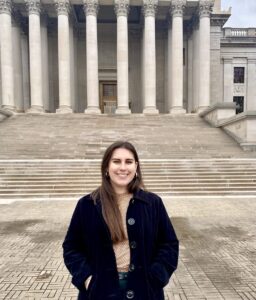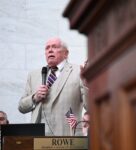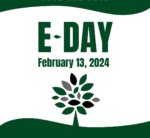 By Isabel Stellato, WVEC Lobbyist
By Isabel Stellato, WVEC Lobbyist
It’s hard to believe we’ve come to the halfway point of the session. I don’t need to rely on landmarks as much to orient myself in the Capitol, and I can match names with the now-familiar faces I pass every day. And, while we’re still in the thick of it, I’m starting to make sense out of the heaps of information that piled up so fast in the beginning. I can see the legislative process with fresh eyes while feeling the same highs and lows of my colleagues who have long been initiated into this world.
One of the highs, for example, was watching HB 5018, the air monitoring bill, move through the House and participating in my first public hearing. Speaking to a room full of lawmakers was challenging, but doing so with over a dozen other speakers also testifying against the bill felt empowering. When the bill was debated for the first time on the House floor, I felt excited and energized – delegates opposing the bill made such strong, compelling arguments, voicing our concerns perfectly. Surely, we would get the votes we needed…
Then, I hit my first low. I was shocked, then angry, then frustrated when I realized how strong the competing interests were. Of course, it wouldn’t be that easy, not when the leading advocate for the bill had, in lieu of a solid defense, listed off the companies (polluters) backing the bill for everyone to hear. Unfortunately, HB 5018 passed the House. I still have hope for its journey through the Senate.
One thing I’ve come to understand over these four weeks is how heavily the democratic process relies on lobbyists. Having dozens of bills to sift through daily and thousands during a session, legislators may not have time to research and understand the implications of every bill and may not know the right questions to ask when a bill comes up in committee. Lobbyists help by educating lawmakers on important issues, which can help them make more informed decisions. We can raise legitimate concerns that may have never been considered otherwise. I’ve also learned that it’s not just lobbyists like Lucia Valentine and me – anyone can sit down with a lawmaker and advocate for themselves and their community.
I understood this clearly when WV Clean and Beautiful, a Hardy County advocacy group, traveled to Charleston to lobby against SB 171, which would limit county oversight over agricultural operations. Our group included stakeholders: a county commissioner, a farmer, a property owner, a lawyer, Lucia and another lobbyist. Together, they brought concerns to two legislators, both bill sponsors, who stated they were unaware of its implications. The bill was removed from the committee agenda, and while we’re still watching to see what happens, we have two more allies with voting power than before.
The first half of the session has demystified a lot for me about what happens under the Golden Dome. The biggest takeaway is this: our lawmakers are just people. They’re willing to listen. You don’t have to be an expert on an issue, and if they ask questions you can’t answer, that’s just an opportunity to reach out again with more information. As I understand it, though, these next few weeks might be a different ballgame. Stay tuned!






